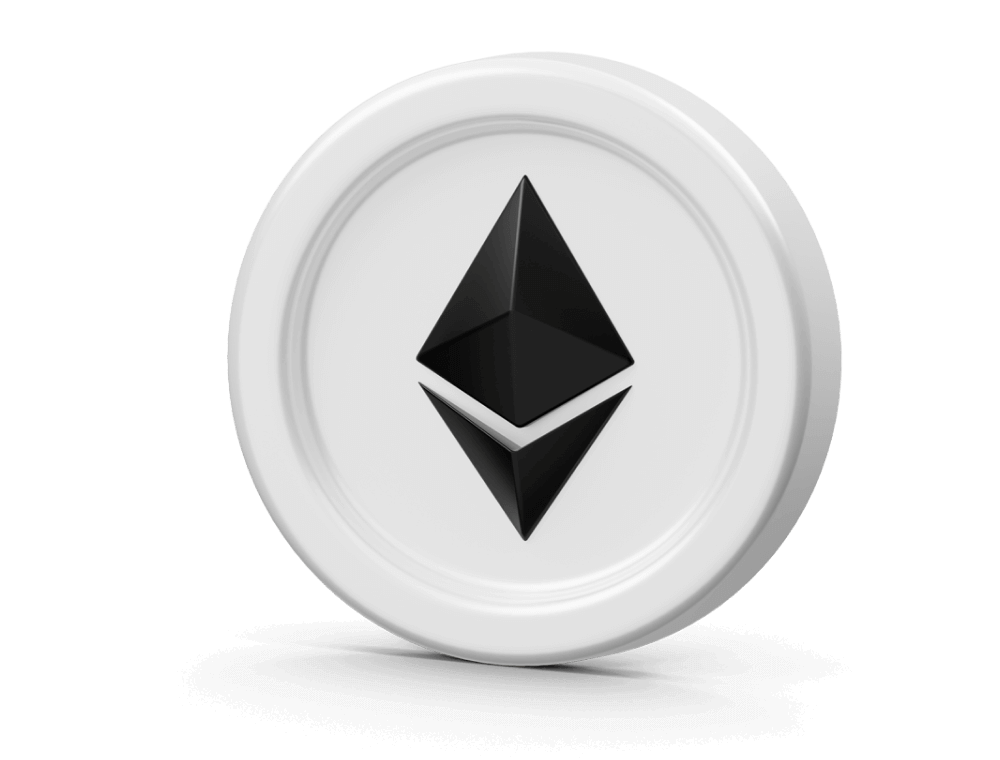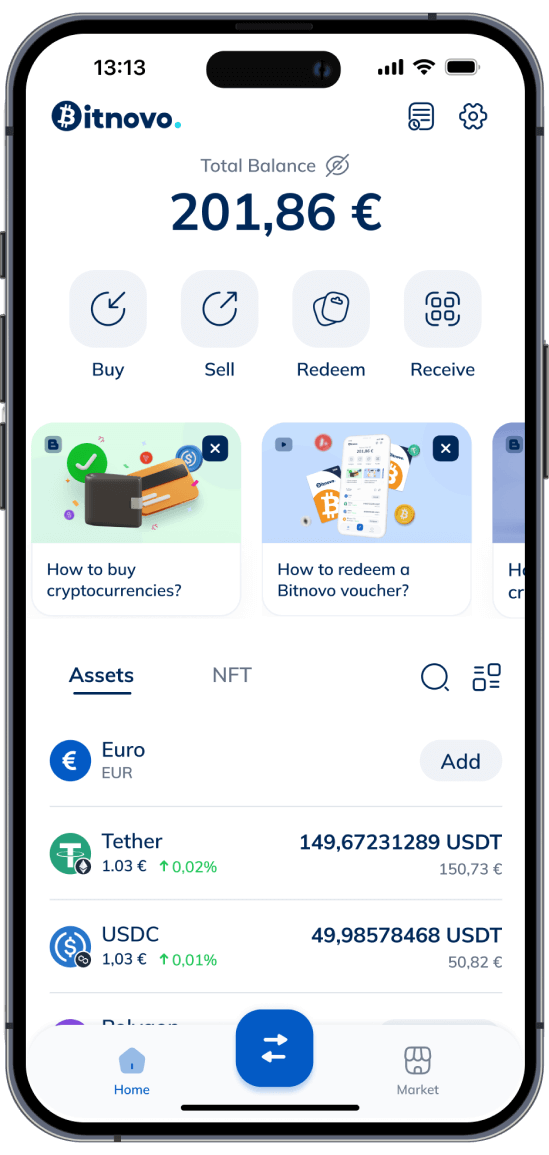
Price Ethereum (ETH)
Purchase price
0,00 €
Sale price
0,00 €
Variation
0 %
We update the prices of Ethereum in Spain in real time.
Buy ETH with Visa/MasterCard or via SEPA transfer. Create your account now and receive a promotional code.

Real time quote
Functioning of Ethereum
Smart Contracts on the Ethereum Network
Smart contracts on Ethereum are autonomous and run on the network thanks to the EVM. They enable the creation of digital agreements without intermediaries, ensuring transparency and security in transactions.
Ethereum Virtual Machine (EVM)
The Ethereum Virtual Machine is the engine that executes smart contracts on the network. It provides a secure and deterministic execution environment to ensure the correct operation of decentralized applications.
Decentralized Applications and Non-Fungible Tokens (NFTs)
Thanks to Ethereum, numerous decentralized applications have been developed that run on the blockchain network. Additionally, Ethereum has been a pioneer in the issuance of non-fungible tokens (NFTs), which represent unique digital assets and have revolutionized the digital art and collectibles industry.
More about Ethereum
Ethereum and Proof-of-Stake
Ethereum has transitioned to proof-of-stake, a significant change in its operation. This new methodology involves the elimination of mining on the Ethereum network, positively impacting its energy efficiency and blockchain security.
Elimination of Mining on the Ethereum Network
With the elimination of mining on the Ethereum network, energy consumption associated with the generation of new coins and the validation of transactions has decreased. This change has contributed to reducing Ethereum's carbon footprint, making the network more sustainable in the long term.
Growth Prospects of Ethereum
Ethereum's horizon shows potential for expansion and strengthening. The adoption of Ethereum in various sectors could drive its exponential growth, consolidating it as one of the leading cryptocurrencies in the global market.
Potential Impact on the Cryptocurrency Market
Ethereum's potential impact on the cryptocurrency market is significant, as its evolution and adoption can influence the dynamics and valuation of other digital currencies. Its position as a pioneer in smart contracts and decentralized applications positions it as a key player in the future digital economy.
Differences between Ethereum and Bitcoin
Bitcoin is the first cryptocurrency and mainly focuses on being a decentralized digital asset, while Ethereum offers a platform to run smart contracts and decentralized applications.
Ethereum uses a programming language called Solidity to create smart contracts, unlike Bitcoin, which relies on a mining system to validate transactions.
The Ethereum network has faster block times and more flexible transaction fees compared to the Bitcoin network.
Positioning of Ethereum in the Cryptocurrency Market
Ethereum has established itself as the second-largest cryptocurrency by market capitalization, maintaining its position against competitors like Binance Coin and Solana.
Its popularity is largely due to its functionality as a platform for decentralized applications and smart contracts, attracting a wide community of developers and users worldwide.
With the launch of Ethereum 2.0 and the transition to proof-of-stake, the network is expected to improve its energy efficiency and security, which could reinforce its position as one of the leading cryptocurrencies in the global market.
Cryptocurrencies Rising and Falling
Top Best Performers
Top Worst Performers
Price of all cryptocurrencies




























See more
